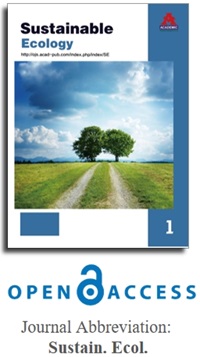Description
Sustainable Ecology (SE) is an international, open-access publication dedicated to advancing the understanding and application of sustainable practices within the field of ecology. This journal employs a double-blind peer review process to ensure the highest standards of academic rigor and integrity. The journal’s open-access model ensures that valuable research is available to a wide audience that includes researchers and scientists in ecology and related fields, environmental consultants and engineers, industry professionals and business managers, policy makers and government officials, and other organizations focused on sustainability.
The primary aim of Sustainable Ecology is to promote interdisciplinary research that contributes to the sustainable management of ecological systems. The journal welcomes a broad range of topics, including but not limited to:
- Ecological impacts of energy options
- Carbon-neutral strategies
- Climate change mitigation and adaptation
- Governance of global environmental events
- Ecological cities
- Coordination of complex ecosystems
- Human dimensions in natural ecosystems
- Management of ecosystem services
The journal prioritizes research that provides new knowledge and insights into these areas, supporting the goals of sustainable development and ecological balance. Other types of manuscripts are also welcomed, e.g., reviews, perspectives, book reviews, and opinion pieces.




 Open Access
Open Access
4.png)

